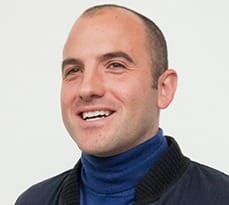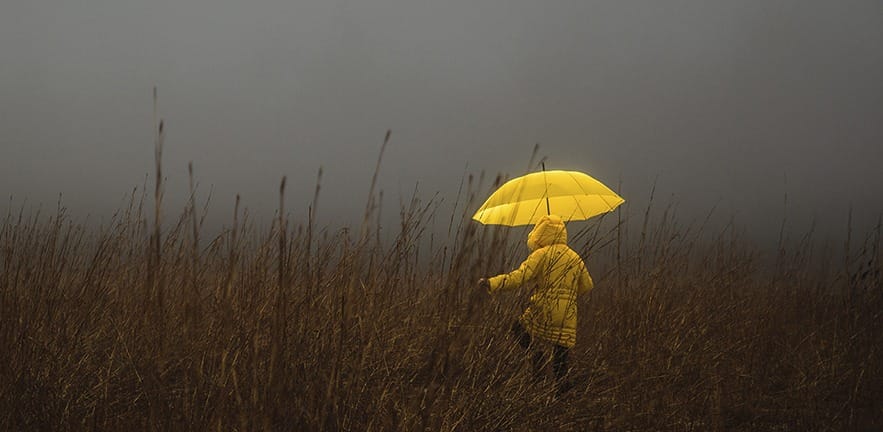
“We’ve been called the cultural McKinsey,” says James Pattinson, co-founder of Reluctantly Brave. “While it might be an over-simplification, it seems to make sense to people. Every organisation goes through a period of reluctance where they know they need to change. We help guide them through that process, but we help them see the unseen.”
That ‘unseen’ is what makes Reluctantly Brave different: without it, real creativity is difficult to achieve. To get that spark alongside the richness of the unseen, it deliberately employs a blend of high-achieving graduates and smart young people with what Pattinson calls ‘street wisdom’, who don’t have much formal education.
Pattinson studied geography at Oxford, followed by the (then) Diploma in Management Studies at Cambridge Judge Business School, graduating in 2003. Over the next 7 years, he worked for Procter & Gamble on global brands such as Lacoste, with stints in New York, Geneva and the UK. He was a brand manager by the time he moved to British Gas, and then took a series of posts in agencies, including global brand consultants Landor Associates and advertising agency BBH.
In 2012, he set up Reluctantly Brave with his brother, Jonathan, a branding expert, Adam Papaphilippopoulos, a former City lawyer, and David Gustave, who he met at Oxford. Gustave left school at 16 and put himself through night school before gaining a place to study history at Oxford, age 34. He spent the next 8 years inspiring young people from deprived backgrounds to access university. Gustave’s influence, says Pattinson, has played a big part in his own journey.
“When I met him at Oxford, I was so impressed by him,” he remembers. “I had so much opportunity, while he had to take a much longer path to get to the same point as me. I found that very impressive. We talked and thought a lot, and became good friends, and it was him that came up with the name Reluctantly Brave. It came from his personal experience. Making life changes and moving forward always felt, or feels, like it involves both reluctance and bravery – right down to simple things, like reading a book.”
Pattinson takes his business inspiration from the Design Research Unit, one of the first interdisciplinary agencies. Established in 1942, it brought the very different viewpoints of poets, architects and designers together. His spiritual inspiration is the great Victorian philanthropist families – the Peabodys or Cadburys – who combined cutting edge business practices with social enrichment.
“A lot of the people working with us in these giant corporations are looking for that missing link around translating the idea of having purpose into how you live that purpose,” says Pattinson. “That’s something that’s often left out. We are a business that makes money for our clients but we believe that we can have positive social outcomes out of that. And at the same time, that enriches us.”
Their clients include everyone from Kellogg’s to Louis Dreyfus Commodities to the local food bank, where Reluctantly Brave offers pro bono advice on reporting and strategy. “For every client we have a non-paying client,” explains Pattinson. “It exposes us to different perspectives that you wouldn’t normally get if you only worked with a narrow band of companies.”
Those different perspectives inform not just what Reluctantly Brave does, but also how it does it. Teams work in ‘pods’ of three or more, inspired by how orcas behave in the wild. “They’re emotionally intelligent, they have their own dialect, they work in teams, and they are curious,” says Pattinson. The employees take turns at cooking for their colleagues and everyone eats together, encouraging the Collegiate atmosphere that Pattinson says he found inspiring at Cambridge.
Right now, Pattinson’s future is bound up with Reluctantly Brave, which is looking to expand internationally in the near future. He’s determined to carry on learning and growing with it. “There’s a great quote from Hemingway,” he says. “True nobility is never looking down on people but only looking down on your former self.”
James would like to meet…
…talented people who are happy to learn, and unlearn.


